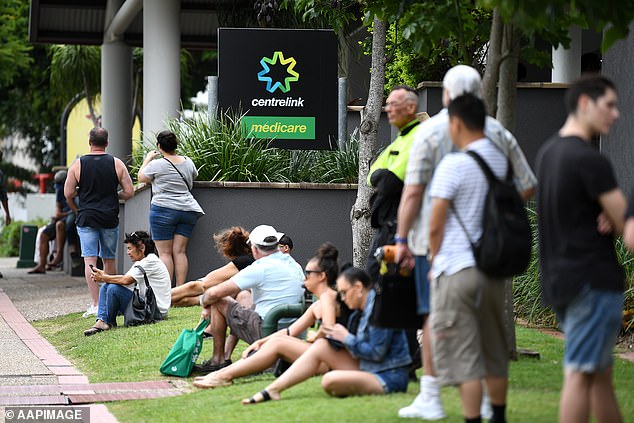Centrelink ‘truth bomb’ that will anger many Aussies
- Centrelink pays better than part-time work
Australians can make more money with Centrelink than working part-time – prompting one comedian to joke that many would be better off on benefits.
The minimum wage of $24.10 per hour equates to $385.60 per week for someone working 16 hours part-time.
But Job Seeker pays $389 a week for someone who is unemployed, single and has no children.
A social media comedian posted a humorous video suggesting that working part-time for minimum wage wasn’t worth it, and joked that it’s better to rely on Centrelink.
He pointed to a waitstaff job that paid between $22 and $25 an hour and was advertised on the Gold Coast.
“Who would want to work for $22 to $25 an hour for 10 to 20 hours? You’re better off with Centrelink, man,” he said, in the guise of a benefits fraudster.
“I wouldn’t even waste your time. Even Centrelink pays more than that.’
With unemployment still low, catering companies are struggling to recruit staff.
This means that restaurants and cafes have to close early or even cease operations because they do not have enough workers to stay open.
An Australian influencer joked that it’s better to get benefits instead of working part-time – highlighting a part-time job that pays less than Centrelink
Getting benefits or working part-time wouldn’t pay the rent in a capital city where $619 is the average weekly rent for a unit.
This makes living in a shared home the only option for the unemployed or those on minimum wage.
But unemployment in Australia is still low at 4.1 percent and 15,900 jobs were created in October.
Of those, 9,700 were full-time and 6,200 were part-time, according to data from the Australian Bureau of Statistics.
Western Australia has the lowest unemployment rate at 3.9 percent, while Queensland and New South Wales are not far behind at 4 percent.

Australians can earn more with Centrelink than working part-time. Pictured is a Centrelink office on the Gold Coast
Wages in the hospitality industry rose 3.5 percent in the year to September, which was in line with the broader economy.
But jobseeker payments rose by 2 per cent or $15.30 per fortnight on September 20, bringing benefits to $778 per fortnight.
The benefit was also indexed on March 20, increasing by 1.8 percent or $13.50 to $762.70 per fortnight.
This means that the unemployed have enjoyed an annual increase in benefits of 3.8 percent, indexed for inflation.
This was also largely in line with the 3.75 percent minimum wage increase that came into effect on July 1.
